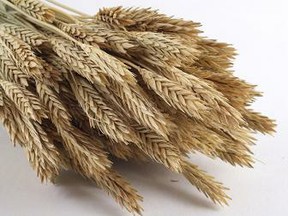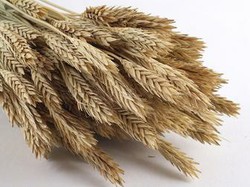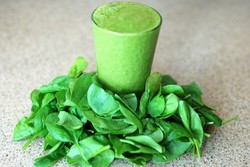
Soluble vs. Insoluble Fiber
by landocheese
Fiber is good for you, but what is the difference between soluble vs. insoluble fiber? Here is a quick, simple answer.
 Wondering About Fiber?
Wondering About Fiber?
If you are wondering what the difference is between soluble vs. insoluble fiber, here is a simple explanation that will help. But before you worry too much about soluble vs. insoluble fiber, know that both types of fiber are good for you, so you should aim to get fiber any way you can.
Fermentation
Soluble fiber ferments in the colon after absorbing water, which changes it into a gaseous state. Insoluble fiber also absorbs water, but unlike soluble fiber, it does not ferment, so no gas is created. There is evidence that the fermentation of soluble fiber aids the body in absorbing minerals.
Reaction to Water
Soluble fiber will dissolve in water, but first it will turn into a kind of gel that serves to slow down digestion. Insoluble fiber does not dissolve in water. Rather, it remains quite unchanged and passes through the system, aiding in digestion, and helping you to avoid constipation.
Food Sources
Soluble fiber is found in things such as oatmeal, sweet potatoes, the flesh of apples and pears, or legumes. Psyllium is a form of soluble fiber. Insoluble fiber is found in many whole grains, nuts and seeds, green beans, brown rice, or bran and barley.
Where to Find Fiber
In addition to the sources above, you can find fiber in most plants. You won’t find it in animal products. If you want to get more fiber in your diet, eat more plants or consider a fiber supplement.
How Much Fiber?
Most recommendations for fiber start at 25 grams per day, on average, and go up from there. That number would be different, and less, for children or some senior citizens, but for the vast majority of adults 25-35 grams is a good target. Getting that much fiber will take some effort, so make sure you add fiber to your diet at every meal.
Other Benefits
Fiber makes you feel full longer and is a natural appetite suppressant. Fiber aids in digestion and is good for your system. It helps you to remain regular, and has virtually no calorie impact to your body since it passes right though. It is important for your diet to include the proper amount of fiber.
The Verdict on Soluble vs. Insoluble Fiber
In the end the verdict is eat both soluble and insoluble fiber. While they act differently in your body, they are both healthy for your digestion and may be added together to hit your target intake of total fiber.
You might also like
Don't get fat this ChristmasHaving lost weight, I am a little anxious about the approaching season and ha...
5 Sneaky Ways to Enjoy Eating Healthier SnacksYou hate vegetables. You drink soda daily and chocolate is your weakness, but...







 The Best Tailgating Games of All Timeon 03/14/2012
The Best Tailgating Games of All Timeon 03/14/2012
 How to Grow Plants From Seed Indoorson 02/15/2012
How to Grow Plants From Seed Indoorson 02/15/2012
 What Every Young Astronomer Needson 11/17/2011
What Every Young Astronomer Needson 11/17/2011


Comments